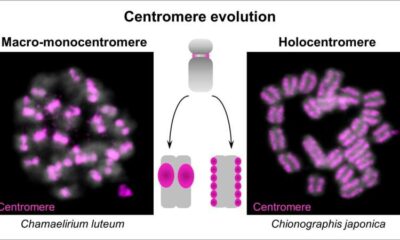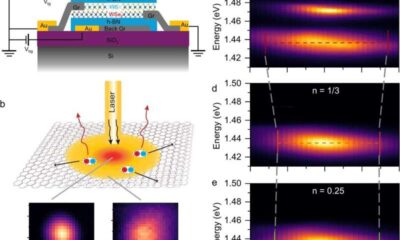Health
Swansea Study Identifies Protein Target for Autoimmune Treatments

A groundbreaking study led by Swansea University has identified a potential new approach for treating certain autoimmune diseases by focusing on a specific protein that regulates energy production in immune cells. The research, published in Nature Communications, indicates that targeting the protein ABHD11 could provide a pathway for developing therapies aimed at conditions like rheumatoid arthritis and type 1 diabetes.
Autoimmune diseases occur when T-cells, which typically defend the body against infections, erroneously attack healthy tissues. In normal circumstances, T-cells adjust their metabolism to respond effectively to infections. However, in autoimmune conditions, these metabolic changes can lead to detrimental effects, causing inflammation and damage to the body.
Research Findings on ABHD11
The study examined immune cells from individuals with and without autoimmune diseases. Researchers discovered that inhibiting the action of ABHD11 resulted in a significant reduction in T-cell overactivity, thereby decreasing the production of inflammatory signals. This inhibition also delayed the onset of type 1 diabetes in experimental models, suggesting that targeting ABHD11 could pave the way for new therapeutic strategies.
Co-led by Dr. Nick Jones from Swansea University, Professor Emma Vincent from the University of Bristol, and Dr. James Pearson from Cardiff University, the research highlights the protein’s critical role in managing T-cell activity. Dr. Jones stated, “This research opens up exciting possibilities for developing new treatments that work by adjusting how immune cells use fuels from our diet—a process known as metabolism.” He emphasized that ABHD11 could serve as a valuable target for drugs that aim to reduce inflammation and prevent autoimmune flare-ups.
Implications for Future Treatments
The current treatment landscape for autoimmune diseases often involves medications that can produce significant side effects and may not be effective for all patients. The findings from this study contribute to an emerging body of evidence suggesting that modifying immune cell metabolism could offer a safer and more effective alternative.
Joint first author and Ph.D. student Yasmin Jenkins expressed optimism about the research’s implications, stating, “Manipulating immune cell metabolism in autoimmune disease offers a promising therapeutic avenue to explore, and our work highlights the exciting potential of ABHD11 as a target for the development of new treatments.” Jenkins and the research team aim to further investigate the effects of targeting ABHD11 in various immune cell types, hoping to extend the potential benefits to a broader range of autoimmune disorders.
This study represents a significant step forward in the quest for more effective treatments for autoimmune diseases, with researchers anticipating further developments in the coming years. As the team continues to explore the role of ABHD11, the hope is that these findings will lead to innovative therapies that improve the quality of life for those affected by autoimmune conditions.
More information on the study can be found in the publication: Benjamin J. Jenkins et al, “Mitochondrial ABHD11 inhibition drives sterol metabolism to modulate T-cell effector function,” Nature Communications, 2025. DOI: 10.1038/s41467-025-65417-4.
-

 Science2 weeks ago
Science2 weeks agoNostradamus’ 2026 Predictions: Star Death and Dark Events Loom
-

 Technology1 month ago
Technology1 month agoOpenAI to Implement Age Verification for ChatGPT by December 2025
-

 Technology6 months ago
Technology6 months agoDiscover the Top 10 Calorie Counting Apps of 2025
-

 Health4 months ago
Health4 months agoBella Hadid Shares Health Update After Treatment for Lyme Disease
-

 Health4 months ago
Health4 months agoAnalysts Project Stronger Growth for Apple’s iPhone 17 Lineup
-

 Health4 months ago
Health4 months agoErin Bates Shares Recovery Update Following Sepsis Complications
-

 Technology4 months ago
Technology4 months agoElectric Moto Influencer Surronster Arrested in Tijuana
-

 Technology5 months ago
Technology5 months agoDiscover How to Reverse Image Search Using ChatGPT Effortlessly
-

 Technology6 months ago
Technology6 months agoMeta Initiates $60B AI Data Center Expansion, Starting in Ohio
-

 Technology6 months ago
Technology6 months agoRecovering a Suspended TikTok Account: A Step-by-Step Guide
-

 Education4 months ago
Education4 months agoHarvard Secures Court Victory Over Federal Funding Cuts
-

 Technology2 months ago
Technology2 months agoDiscover 2025’s Top GPUs for Exceptional 4K Gaming Performance





















